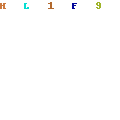
Early Childhood Caries (ECC) – Baby Bottle Tooth Decay
Even though baby teeth are temporary, they play an important role in your child’s oral health. Baby teeth help your child speak properly and chew food thoroughly. Baby teeth also reserve space in the mouth for the adult teeth to come through. Baby teeth (deciduous or milk teeth) start appearing at six months of age. They will continue to come through until your child is around 33 months old. Children don’t lose all of their baby teeth until they are 12 years old. Therefore, their baby teeth need to be healthy and remain in the mouth for several years before they are ready to fall out naturally.
Baby Bottle Tooth Decay
Contents
Baby bottle tooth decay is a preventable condition that affects the teeth of infants and young children. It occurs when sugary liquids, such as formula, milk, fruit juice, or other sweetened beverages, are left on the baby’s teeth for long periods. As a result, bacteria in the mouth produce acid, which can dissolve enamel and lead to cavities.
To prevent baby bottle tooth decay from developing in your child’s mouth, parents should avoid giving their babies sugary drinks and should clean their mouths after each feeding. This means brushing the gums with a soft cloth or gauze pad even before their first tooth erupts. Parents should also limit sugary snacks and drinks, especially between meals throughout early childhood, so as not to expose young teeth to frequent acid attacks.
What Causes Early Childhood Caries?
Baby bottle tooth decay can occur on any baby’s teeth, but it is most common on the upper front teeth. Some of the causes of early childhood caries are:
 Put your child to bed with a milk, formula, or juice bottle. Only putting your child to bed with a bottle of water can significantly reduce the risk of baby bottle tooth decay.
Put your child to bed with a milk, formula, or juice bottle. Only putting your child to bed with a bottle of water can significantly reduce the risk of baby bottle tooth decay.- Frequent nighttime bottle-feeding or breastfeeding past 12 months of age.
- Frequently snacking or grazing on high-sugar foods.
- Inadequate tooth brushing.
- Dry mouth or mouth breathing.
How Can I Prevent Early Childhood Caries?
Early childhood caries (ECC) is a preventable oral health condition that, if left untreated, can have a lasting impact on children’s dental development. ECC can be caused by prolonged contact between an infant’s teeth and sugary liquids, often from bottle-feeding over prolonged periods. To protect your child from this dental severe disease, there are steps parents and caregivers can take to ensure that their child’s mouth stays healthy.
There are several ways to prevent your child from developing early childhood caries, including the following:
- Do not dip your child’s dummy in anything sweet, such as honey, maple syrup, condensed milk, or jam. Sweet foods can cause decay in children just the same as in adults.
- Only fill your child’s bottle with formula, breast milk, or water. Do not place juice, soft drinks, or cordial in the bottle.
- Clean your child’s teeth before they go to bed using a children’s toothbrush.
- Give your child a clean dummy or a bottle of plain water if they like to suck on something while settling down for sleep.
- Teach your child to drink from a cup by their first birthday.
- Reduce the amount of sugar your child consumes, particularly in between meals.
- Regular visits to the dentist to check the general health of your child’s mouth and for signs of early childhood caries.
The first step in preventing early childhood caries is to develop good oral hygiene habits early. It’s important to start brushing your baby’s teeth twice daily as soon as they emerge and use only a small amount of toothpaste with fluoride.
Conclusion
Healthy baby teeth are essential to your child’s health. They must be looked after to prevent them from developing decay and causing future problems with adult teeth. Taking good care of your child’s teeth now can also establish good habits that will last a lifetime.

